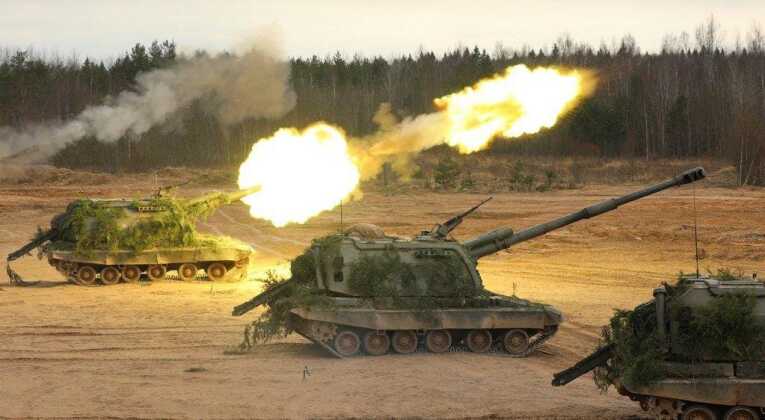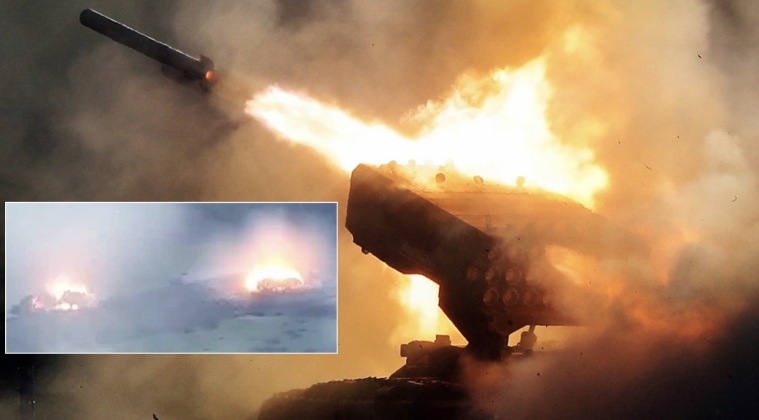News
Untrained Ukrainian Conscripts Fed Into Donbas ‘Meat Grinders’ – U.S. Reports
The Ukrainian Military has reportedly relied on mass deployments of conscripted soldiers, often with little to no training, in its campaign to engage Russian forces in intensive fighting for the Donbas regions which both countries claim as their territory. A recent Wall Street Journal report highlighted that the military had been recruiting poor men from villages, furnishing them with Soviet-era rifles and uniforms, and after two nights at a base sending them to the frontlines. Some of the conscripts sought to sign an official refusal on the basis that they didn’t have proper training, with one recalling that when he protested that he had never held a gun before, the Ukrainian sergeant major replied “Bakhmut will teach you” – a reference to the frontline city at the centre of the fighting in the region. The Journal added that Kiev sent “mobilised soldiers and territorial defence units, sometimes with patchy training and equipment” to the frontlines, “in an effort to preserve brigades trained and equipped by the West for a widely anticipated offensive.” It observed that conscripts referred to the frontlines in Bakhmut as “hell on earth.” Although conscription was highly popular in early 2022, the nature of the casualties faced has reportedly led fast growing numbers to seek to avoid the draft.

In April Ukrainian ambassador to the United Kingdom Vadim Pristaiko revealed that Kiev was concealing the full number of casualties suffered by the country in its ongoing war effort, stating that “it has been our policy from the start not to discuss our losses,” but that “when the war is over, we will acknowledge this. I think it will be a horrible number.” The Wall Street Journal’s reports are in line with those from other Western sources regarding the chaotic nature of the Ukrainian campaign in Bakhmut, which was widely referred to as a “meat grinder” due to the extreme attrition rates suffered by Ukraine’s mass mobilised infantry against Russian artillery. Former U.S. Marine Troy Offenbecker who fought in Bakhmut summarised that Ukrainian and allied forces in Bakhmut faced: “a lot of casualties. The life expectancy is around four hours on the frontline.” Clashes were ”chaotic” and were dubbed “the meat grinder” by the Ukrainians, he added, with Russian artillery strikes being “nonstop,” while Western claims of Russian ammunition shortages appeared far removed from the reality on the ground.

Former senior advisor to the U.S. Secretary of Defence U.S. Army Colonel (ret.) Douglas McGregor, similarly reported that “the Russians went over to a defensive posture, and they have ground away at the Ukrainians who poured tens of thousands of soldiers into their meat grinder. The Russians have taken very light casualties compared to the Ukrainians, and the Ukrainians have lost most of their capable forces and capable manpower.” Former Deutsche Welle journalist from Kiev Konstantin Goncharov, who joined the military when the war began, stated when speaking to the German state outlet after time on the frontlines: “In Bakhmut of course its just a meat grinder. Many recruits who go there [pause] its a lottery for their lives,” adding that the “intensity of fighting and artillery shelling was colossal.” Bakhmut was captured by Russian forces in the third week of May, which Ukrainian officials warned would leave the Russian Army with an open road to advance further westwards and move artillery forward to strike key positions. Fighting remains ongoing across Eastern Ukraine, with similar reports of the use of hundreds of thousands of mass mobilised infantry to attempt to wear down outnumbered Russian forces.












